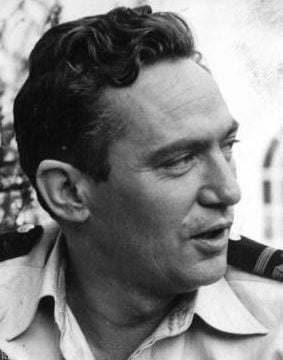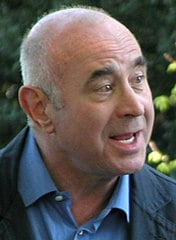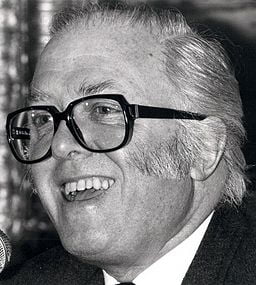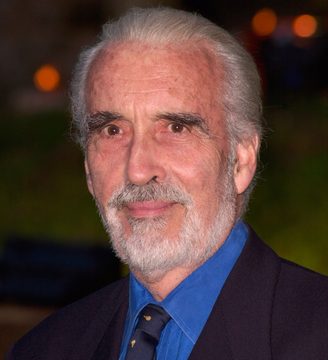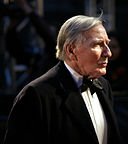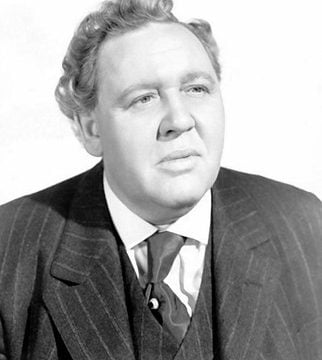Early life and Career
The actor Charles Hawtrey was born George Frederick Joffre Hartree in Hounslow, Middlesex, on 30 November 1914. His parents were William John Hartree, a car mechanic, and his wife Alice. He started his entertainment career early, making records as a boy soprano. He also made his film debut as a child actor, aged 8, appearing in the silent movie Tell Your Children (1922). The following year he made another uncredited appearance in This Freedom (1923). He made his stage debut, aged 11, appearing as an extra in a production of The Windmill Man in Boscombe, Bournemouth.
At age 14, Hawtrey enrolled to study at the Italia Conti Academy of Performing Arts in London. After graduating he embarked on a career in the theatre. He took his stage name from the noted theatrical actor of the time, Sir Charles Hawtrey. The young Charles did little to discourage the popular notion that he was Hawtrey’s son. He made his London stage debut at the Scala Theatre in Camden, London. A string of stage roles quickly followed. By 1929, his stage success had led to a move into radio. In turn, continuing success in radio led to his re-entry into film, when he appeared in Marry Me (1932).
Film and Radio
Hawtrey’s slight frame and effeminate demeanour meant he was a comedy natural. He was cast in Good Morning, Boys (1937) and Where’s That Fire? (1939), supporting the popular comedic actor Will Hay. By 1940, he had appeared in some 25 films, though mostly in bit-part roles. These notably included Murder At Monte Carlo (1935) with Errol Flynn, Man Of The Moment (1935) with Douglas Fairbanks Jnr, Michael Powell’s The Brown Wallet (1936), and Alfred Hitchcock’s Sabotage (1936). He had also appeared on the London stage with a young Vivien Leigh as her brother.
From the mid-1940s onwards Hawtrey was a radio regular. He played leading roles in the long-running series Norman And Henry Bones, The Boy Detectives, and as William Brown’s arch-enemy Hubert Lane in Just William. Hawtrey’s success was largely due to his unusual scrawny build, youthful appearance, and posh accent. However, it also meant he found it difficult to escape typecasting as an overgrown schoolboy.
Later Career
From the mid-1950s Hawtrey began to appear with increasing regularity on British television. In 1957, his TV career took a major boost when he was cast as Private ‘Professor’ Hatchett in the popular sitcom The Army Game. Hawtrey came to the attention of film producer Peter Rodgers who was casting for the up-and-coming army romp Carry On Sergeant (1958). The popularity of the first Carry-On film saw Carry On Nurse (1959), Carry On Teacher (1959), and Carry On Constable (1960) made in quick succession with Hawtrey appearing in all three productions. In 1960, he was also cast in the ITV sitcom Our House, which ran for 2 years with relative success.
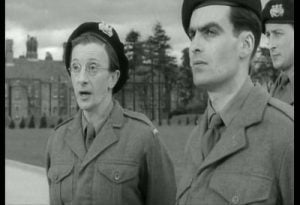
Charles Hawtrey (left) in Carry On Sergeant (1958). Image credit: Flickr/(CC BY-NC 2.0)
Hawtrey went on to appear in a total of 22 of the 31 “Carry On” films in the franchise. His last “Carry On” appearance in Carry On Abroad (1972) also turned out to be his last big screen role. In 1972, Hawtrey’s increasingly drunken and erratic behaviour saw him dropped by Rodgers from the Carry-On franchise. In all, Hawtrey appeared in more than 70 films. However, while Hawtrey had main support billing in the Carry-On films, almost all of his other big-screen appearances tended to be in minor roles.
Personal Life
Hawtrey tended to keep his personal life very private. A known homosexual, he lived with his mother in London for much of his adult life. Known for his bizarre behaviour, he would often bring his mother to set and then lock her in his dressing room during filming. Hawtrey was devastated when his mother died in 1965 after she developed dementia in her later years. In 1968, Hawtrey moved to Deal in Kent, where he remained a resident for the last 20 years of his life.
Following his departure from “Carry On” in 1972, Hawtrey went into semi-retirement, making only the odd television appearance. He was both a heavy smoker and drinker and suffered from arthritis for many years. He began to drink more following his mother’s death and would often arrive drunk on set. His increasingly drunken eccentric exploits meant in later life he managed to alienate both his family and many of his friends. Typically, he would become annoyed and would be rude to fans seeking autographs, refusing to sign.
Hawtrey hit the headlines in August 1984 after his house caught fire and he was rescued by firemen. Reportedly, the fire was started by a carelessly discarded cigarette after Hawtrey had gone to bed with a rent boy.
Ill-health and Death
In the spring of 1984, Hawtrey suffered his first heart attack. On 24 October 1988, Hawtrey collapsed while at the Royal Hotel in Deal. He shattered his femur and was rushed by ambulance to the Buckland Hospital in Dover. There, it was discovered he was suffering from peripheral vascular disease, i.e. narrowing of the arteries, brought on by a lifetime of heavy smoking. Hawtrey was told his legs would have to be amputated if his life was to be saved. He refused the operation, reputedly saying that he preferred “to die with his boots on”
Hawtrey died three days later, aged 73, at a nursing home in Walmer, near Deal. He was cremated and his ashes were scattered in Mortlake Crematorium, close to Chiswick in London. Just nine mourners, none of whom were reportedly friends or family, attended the funeral.
